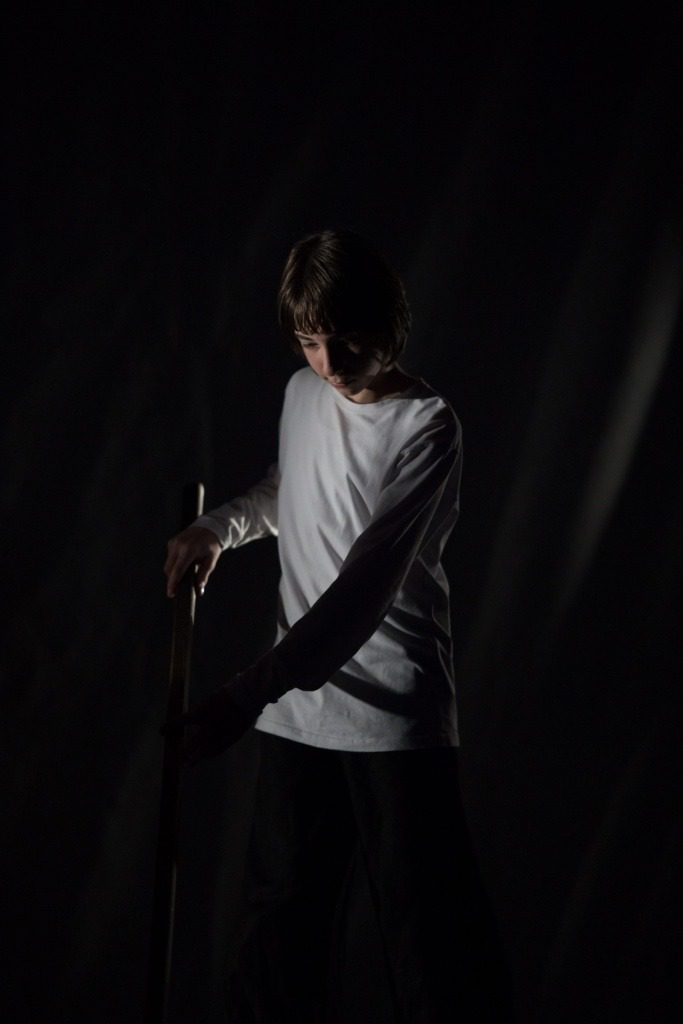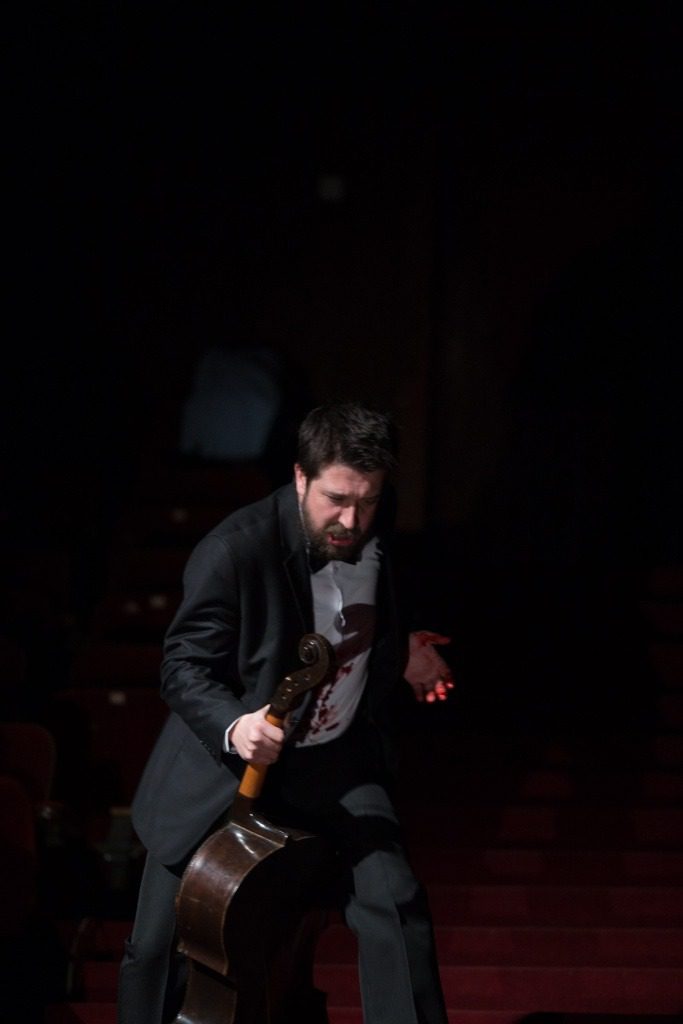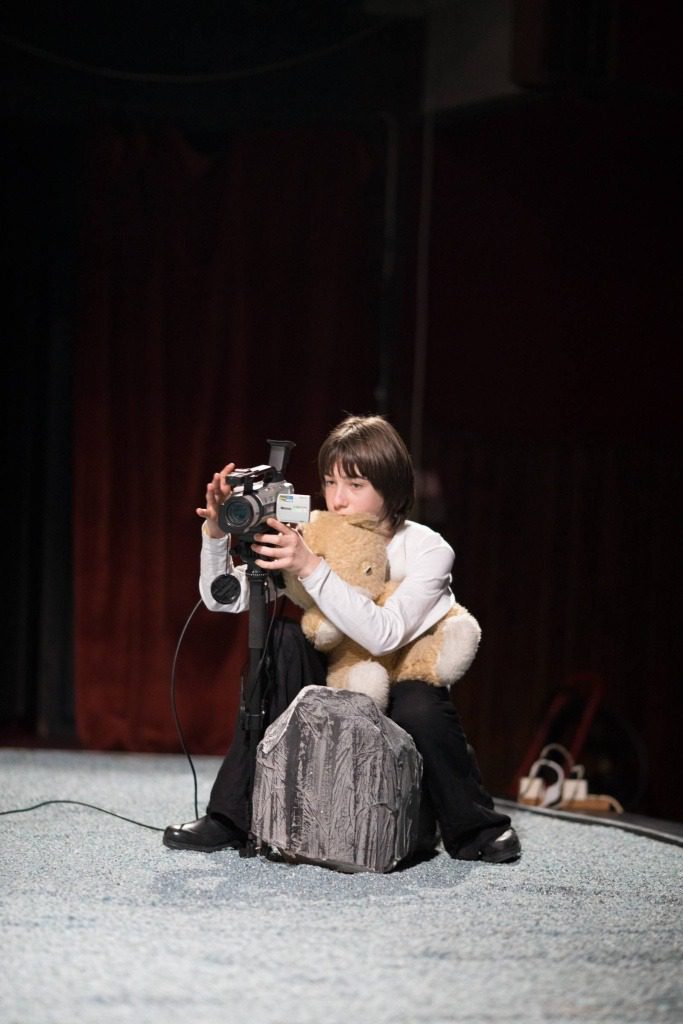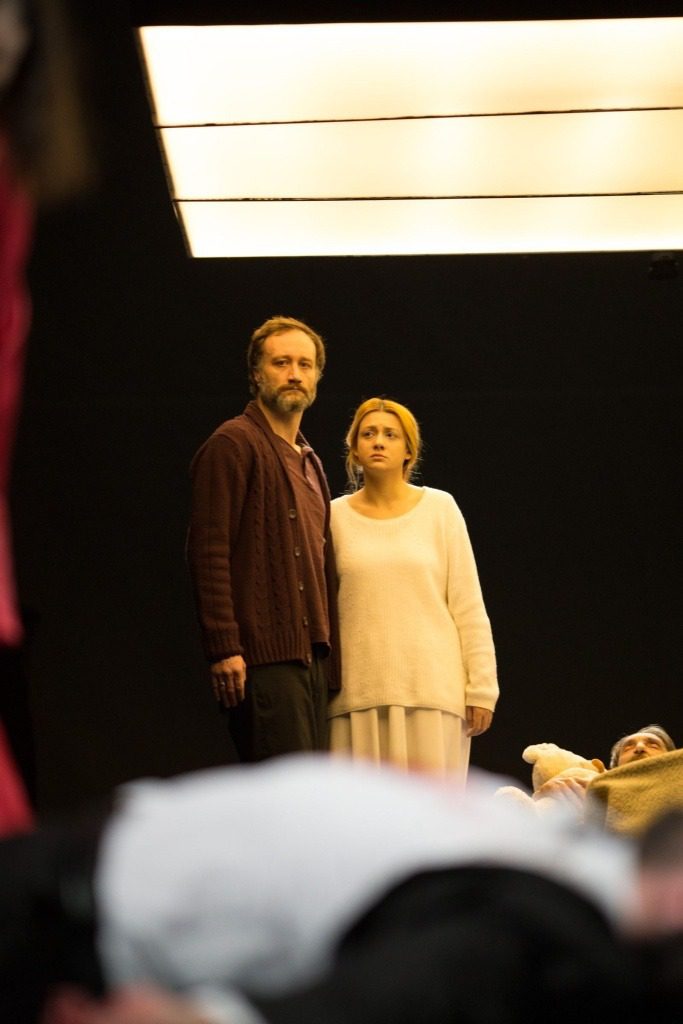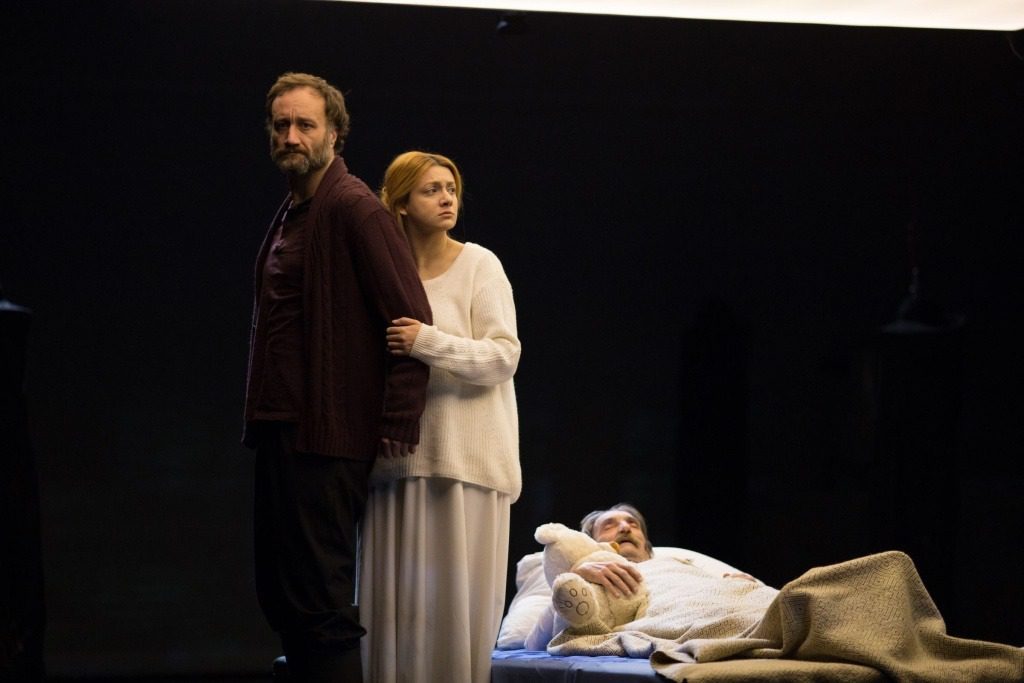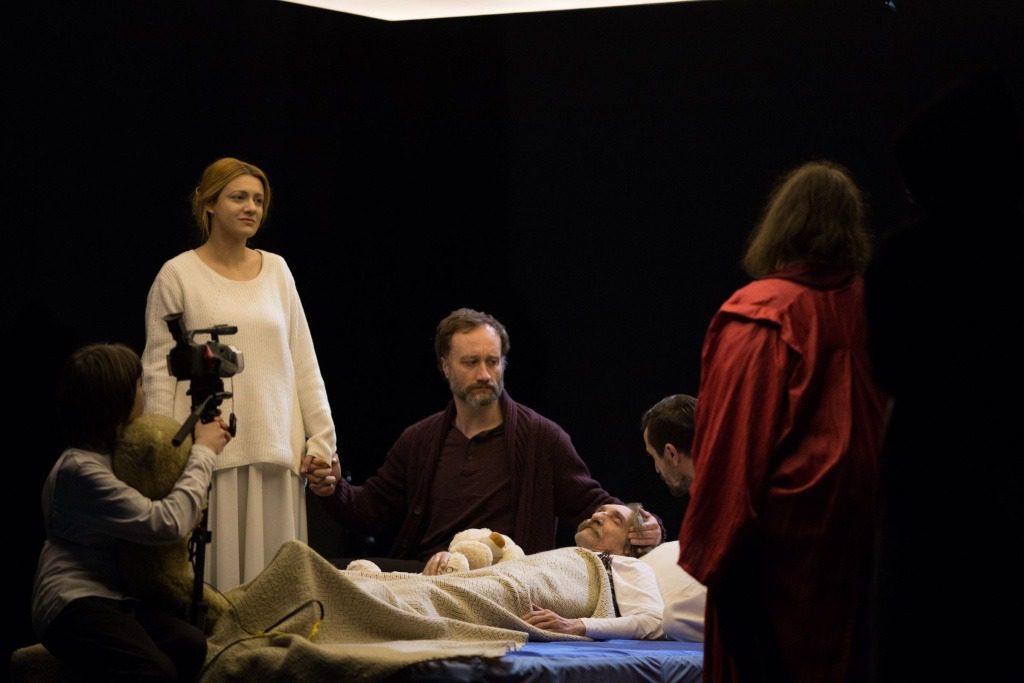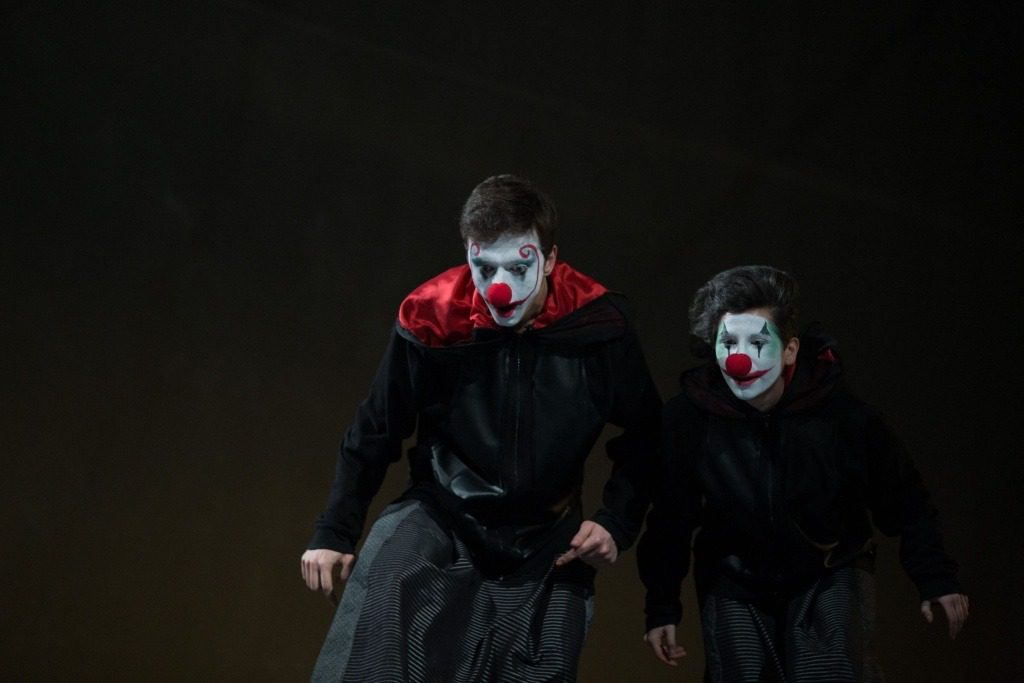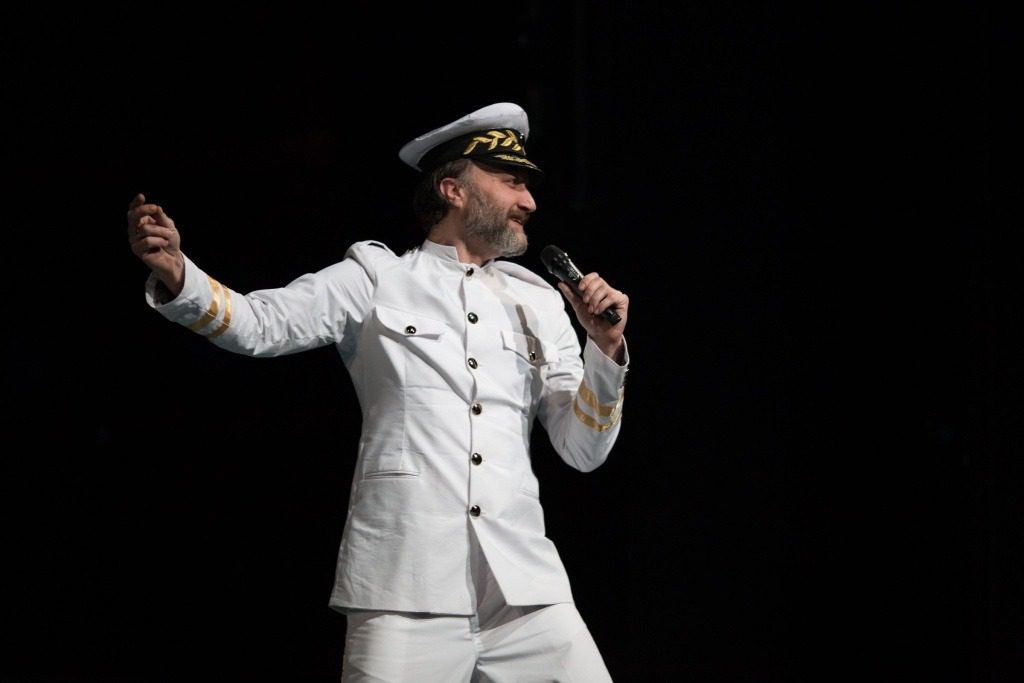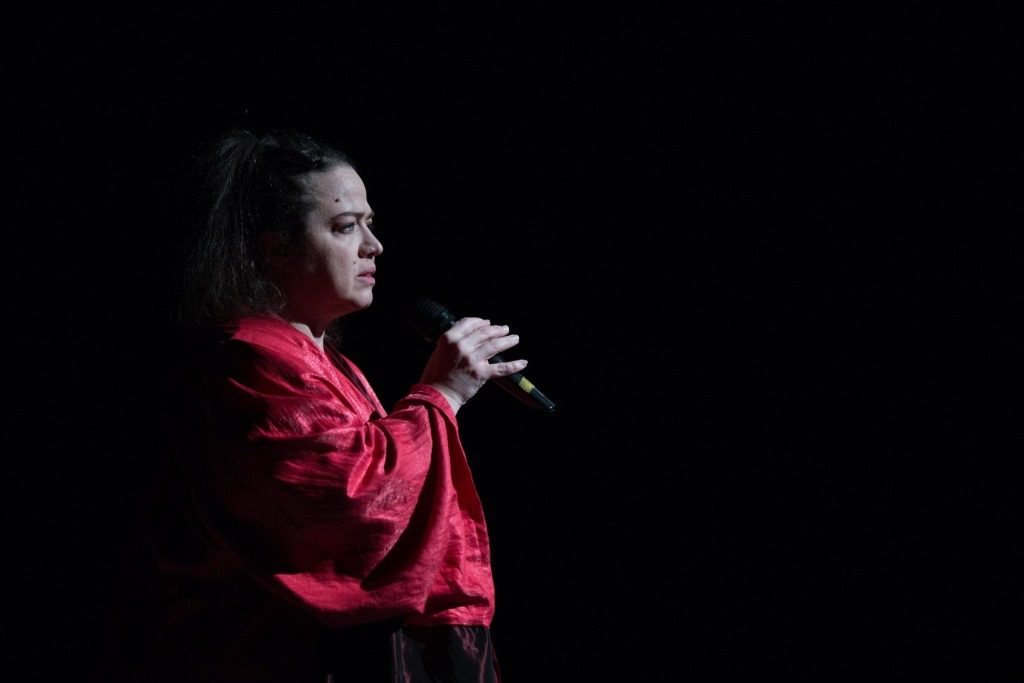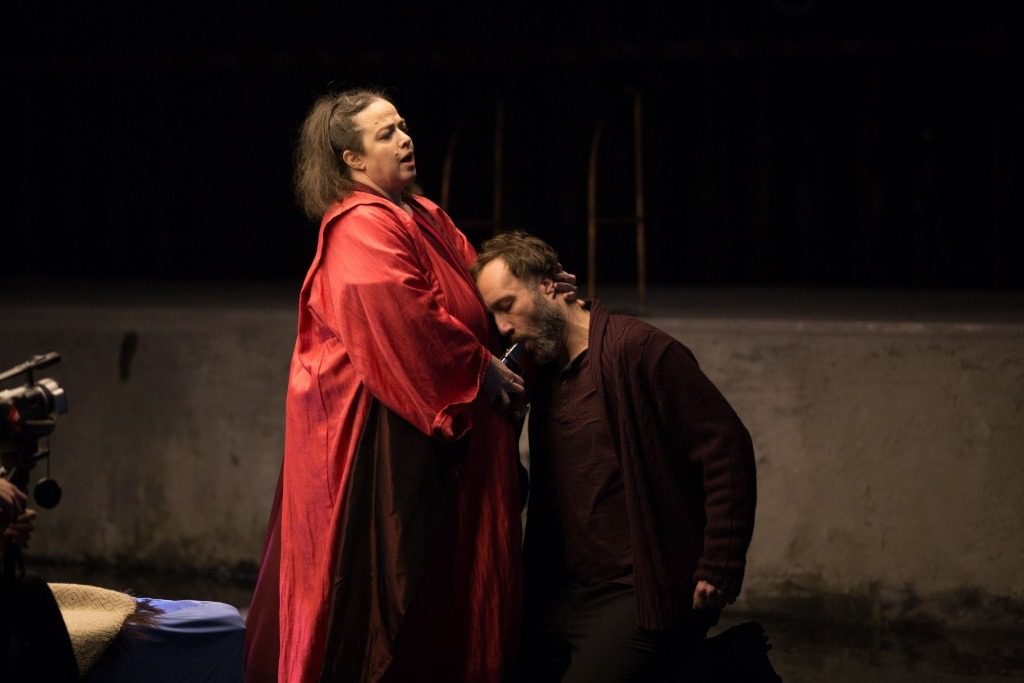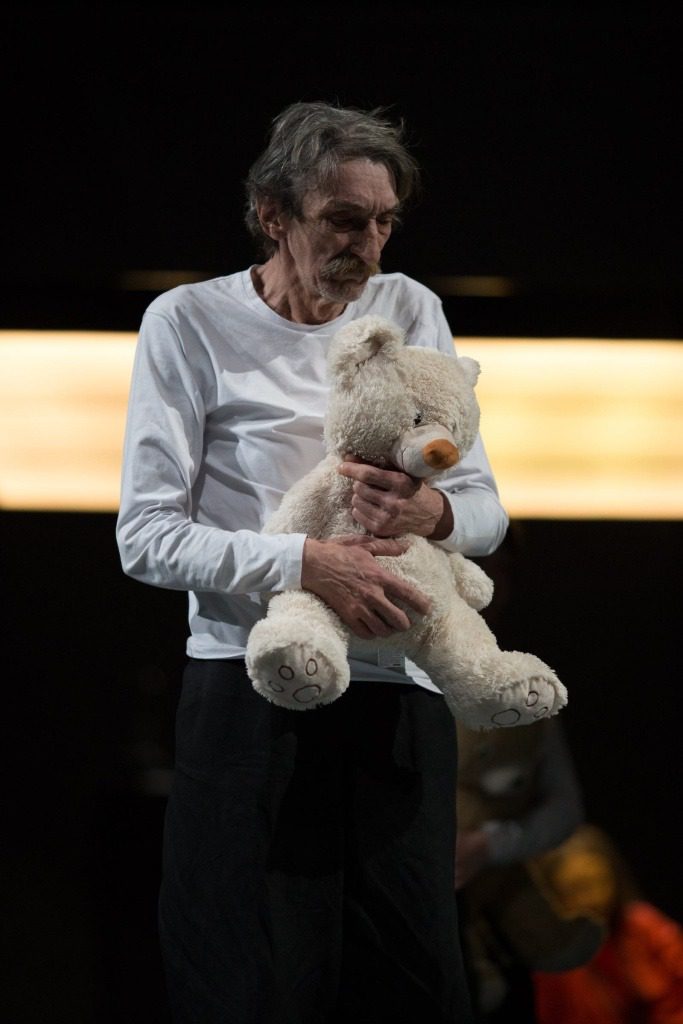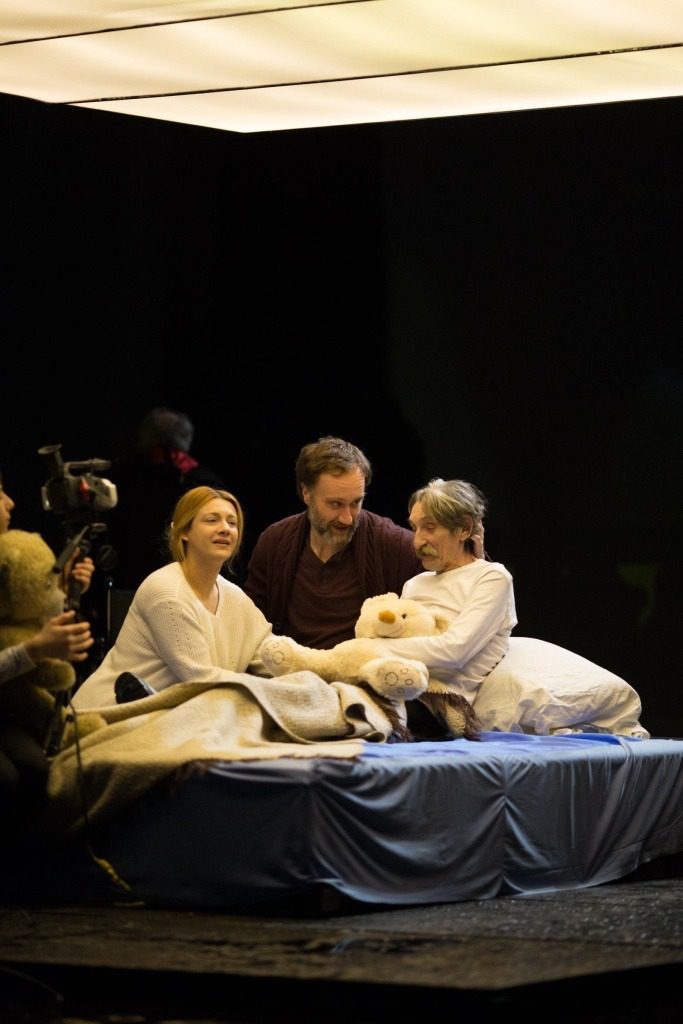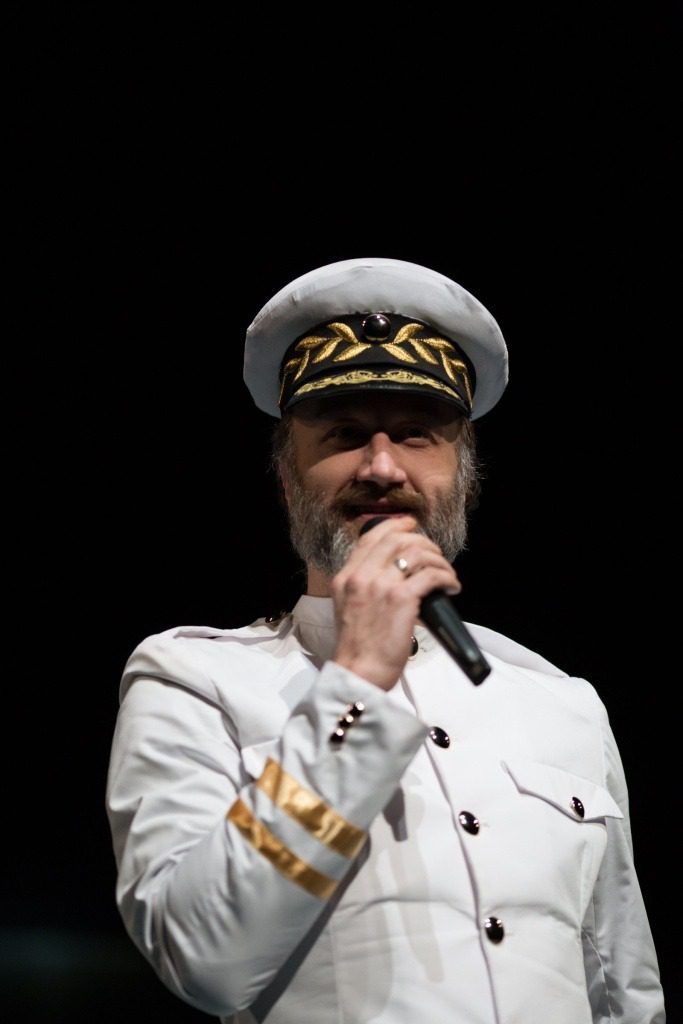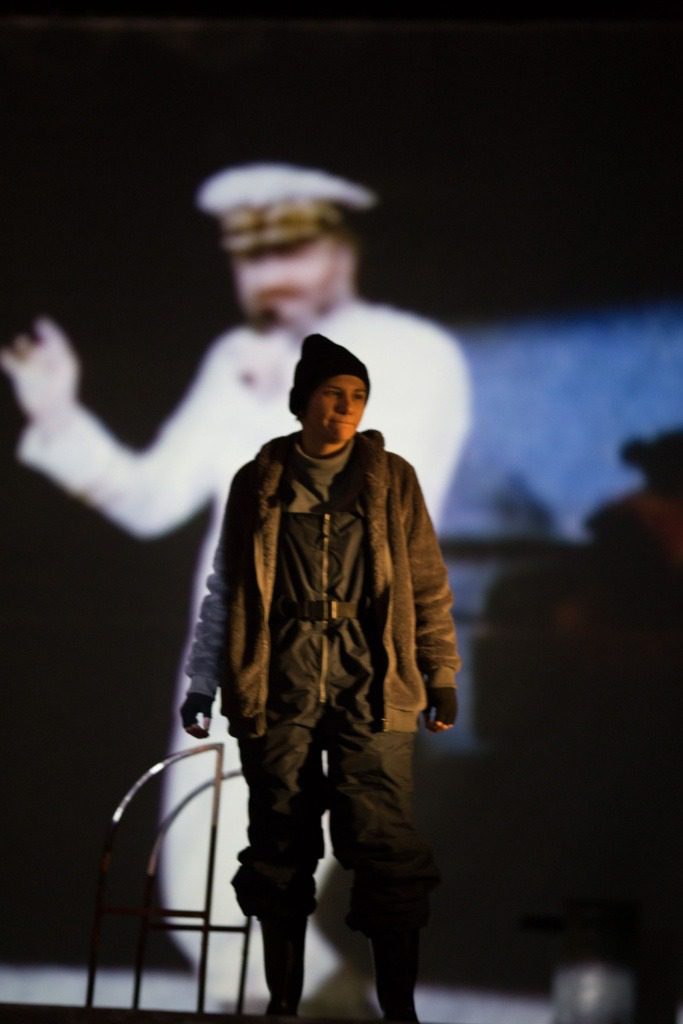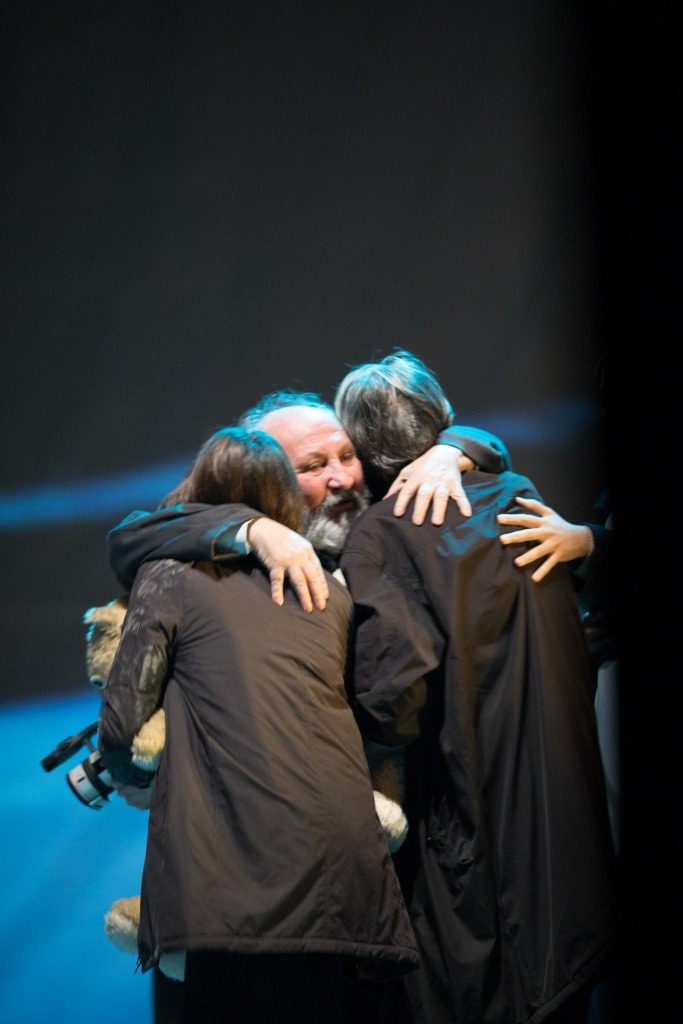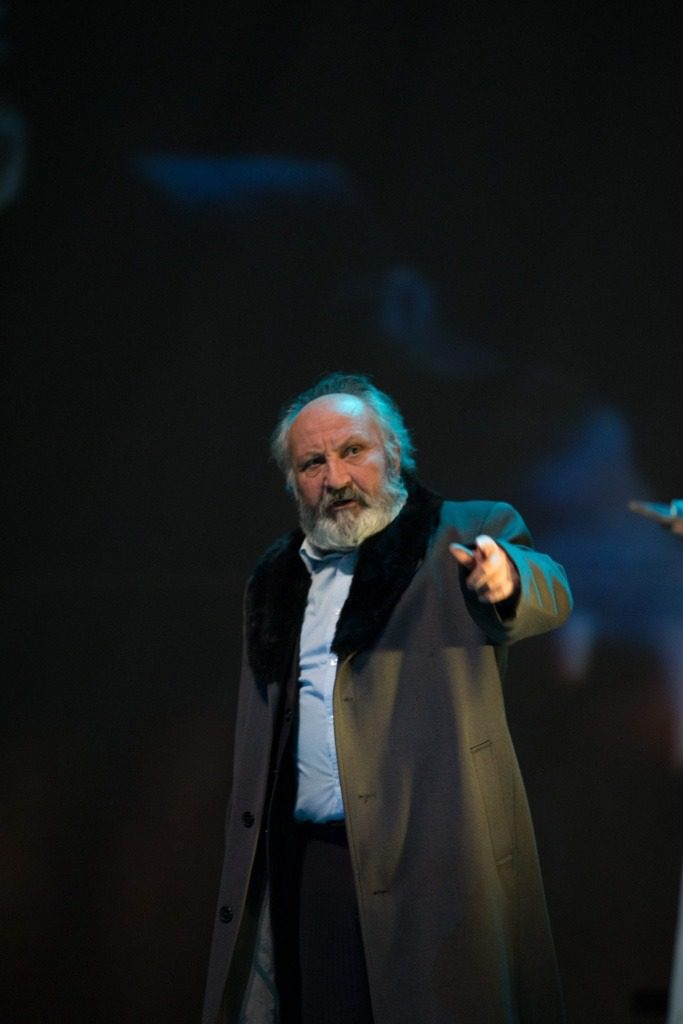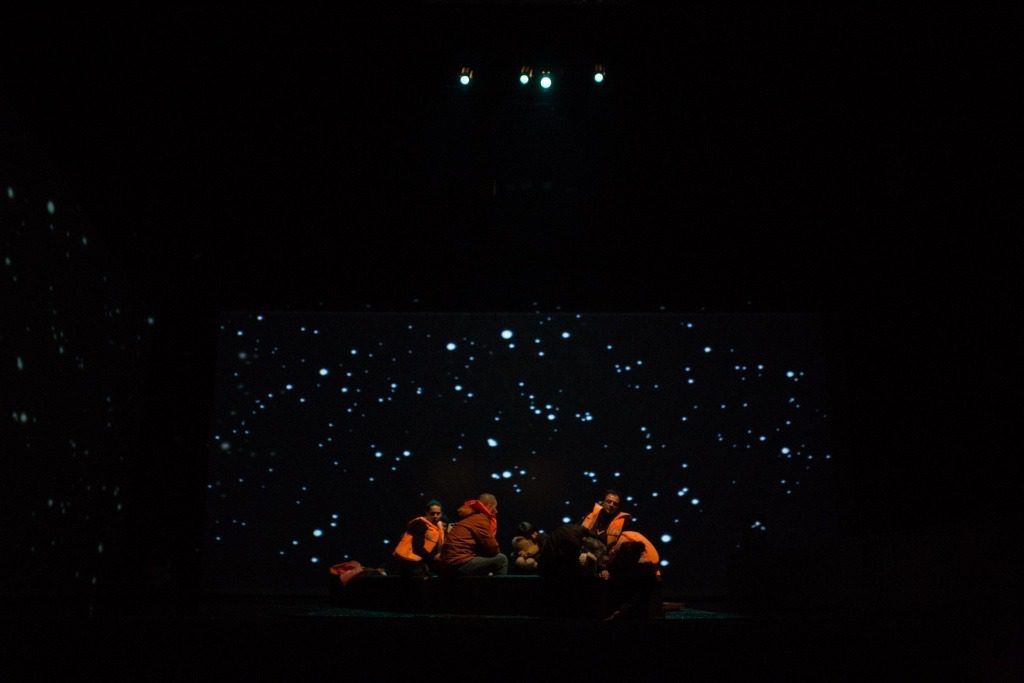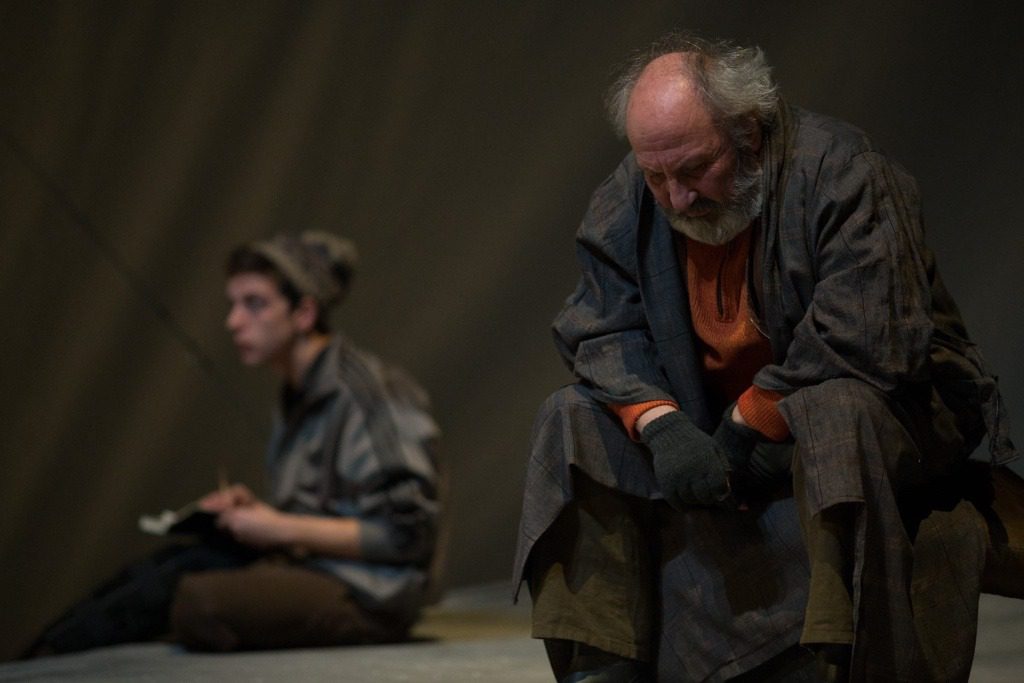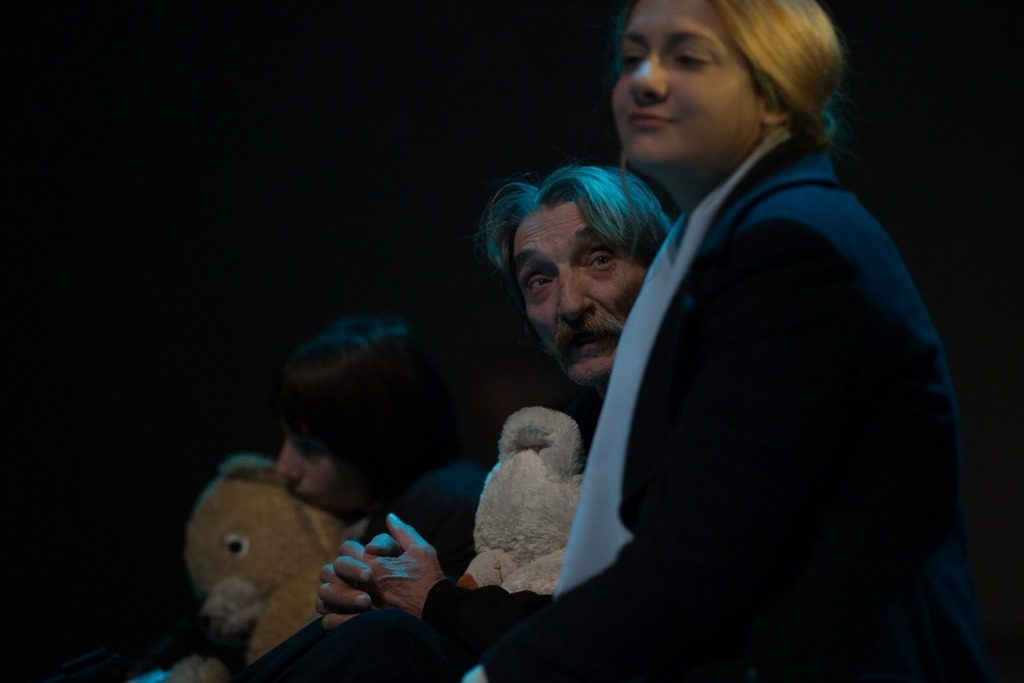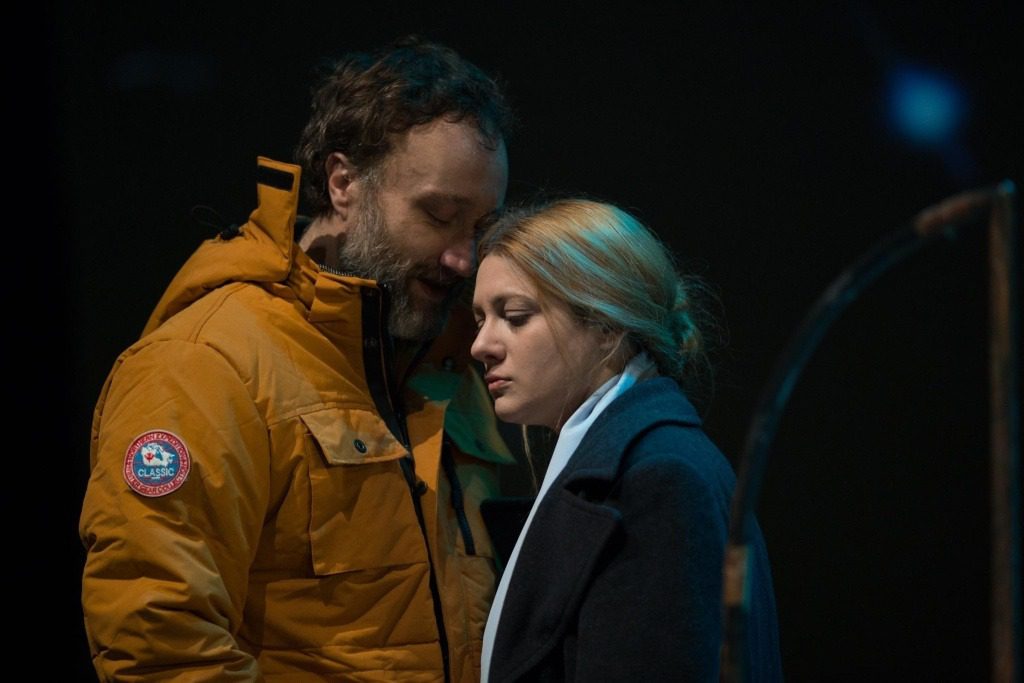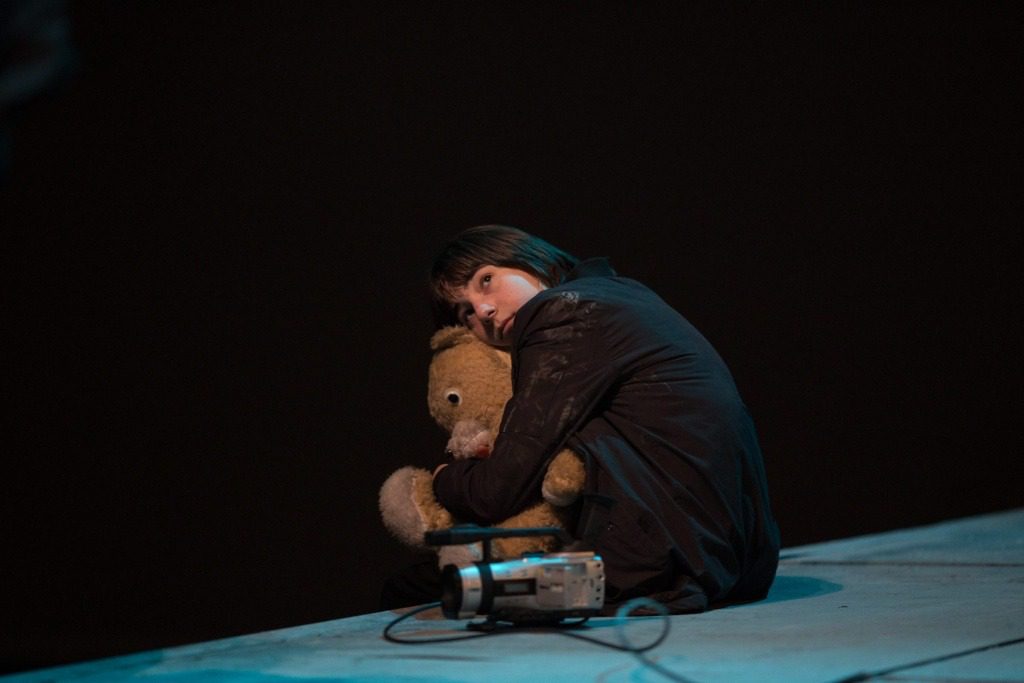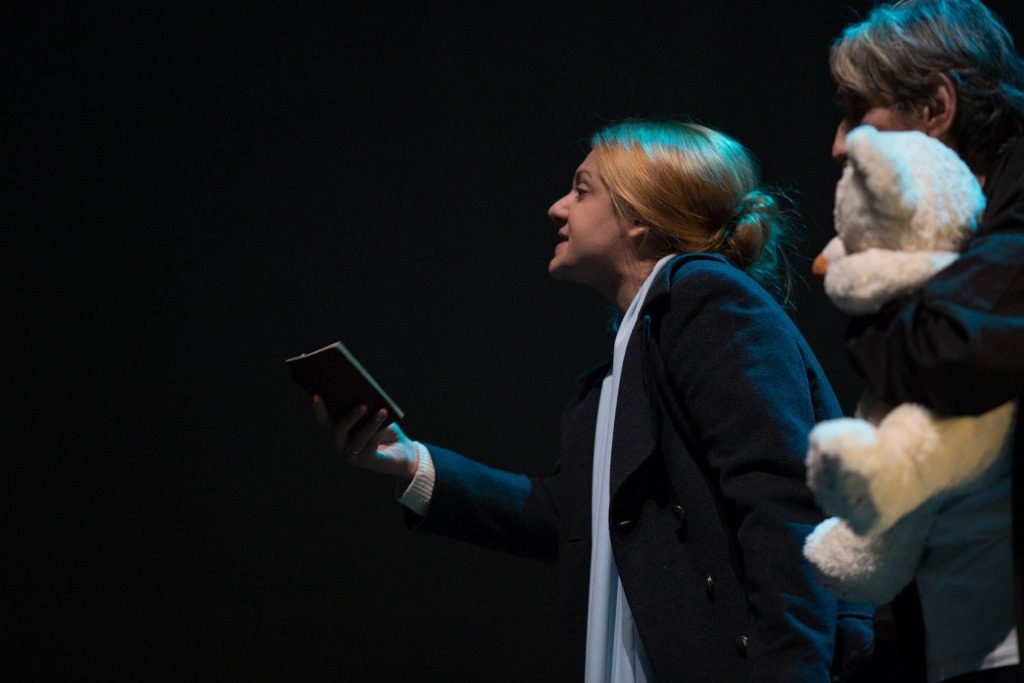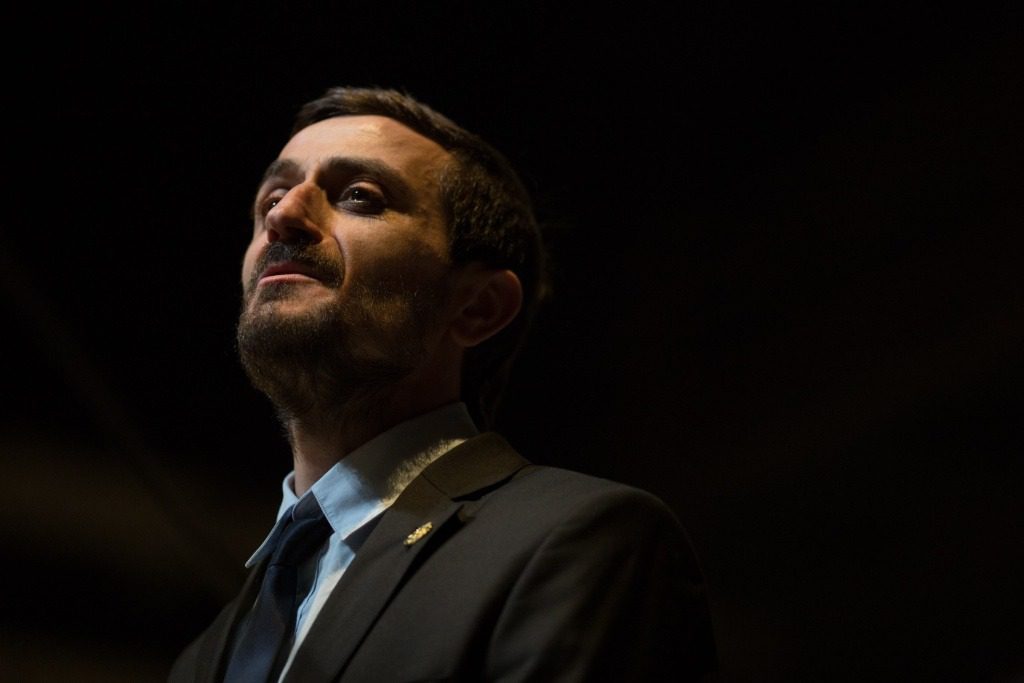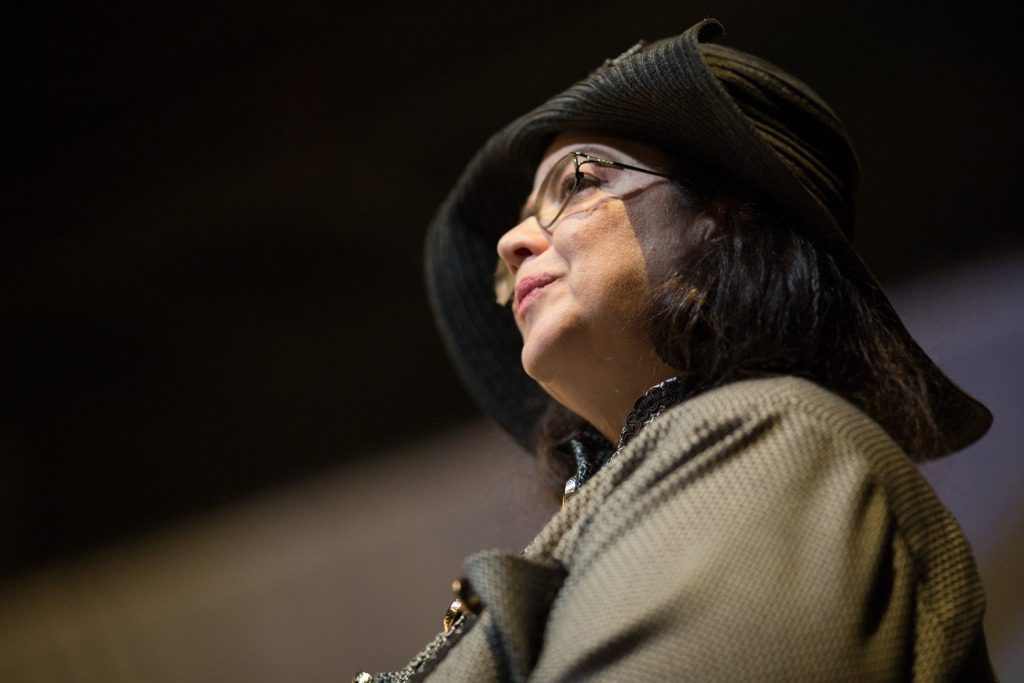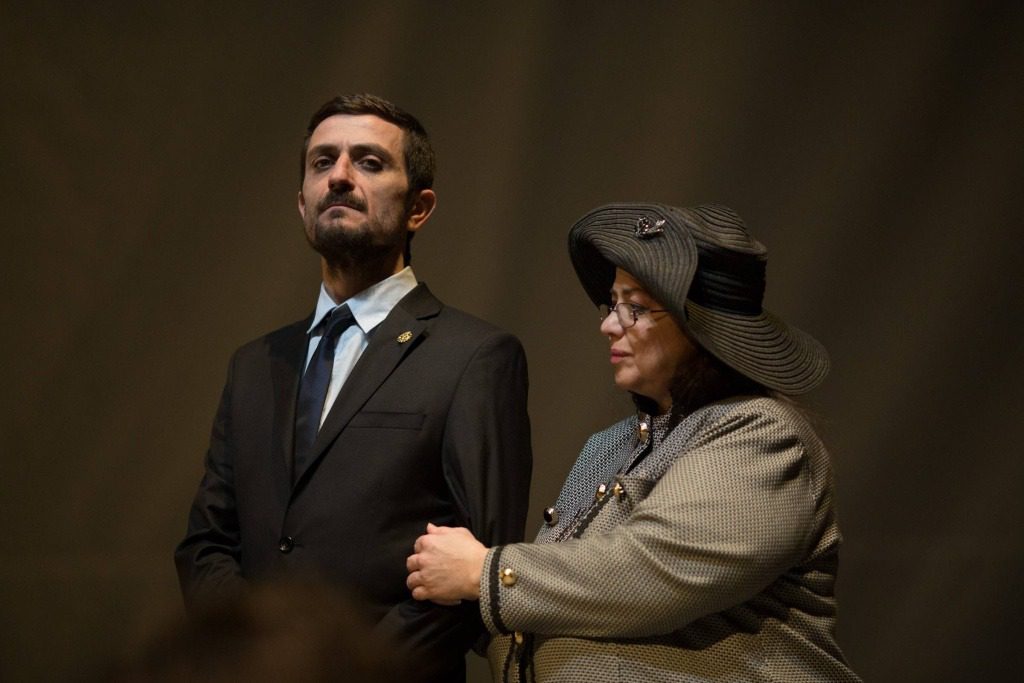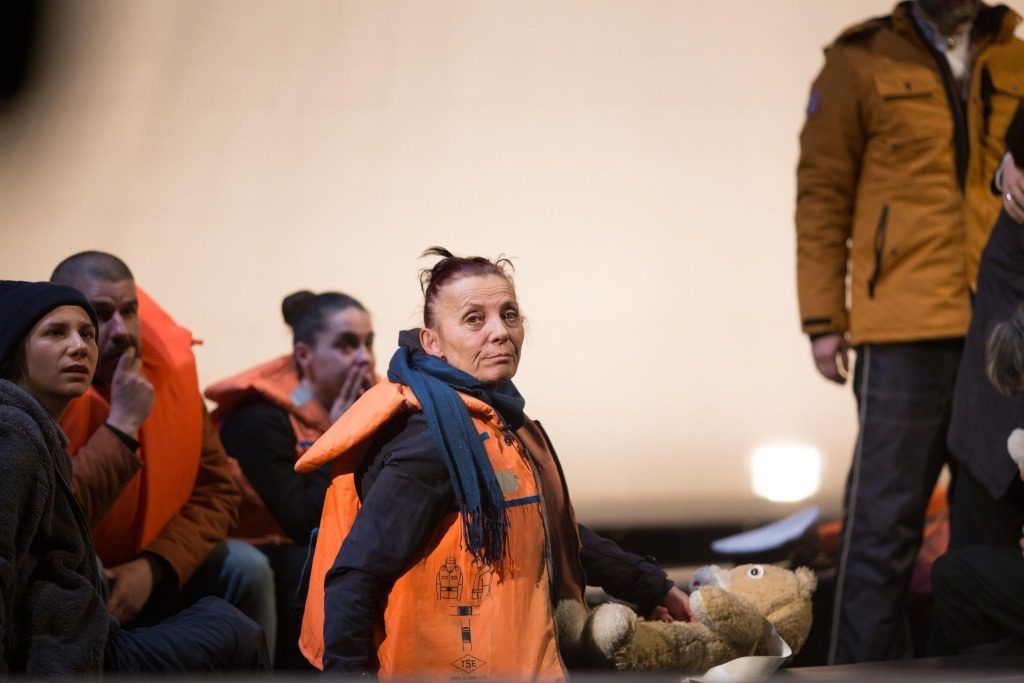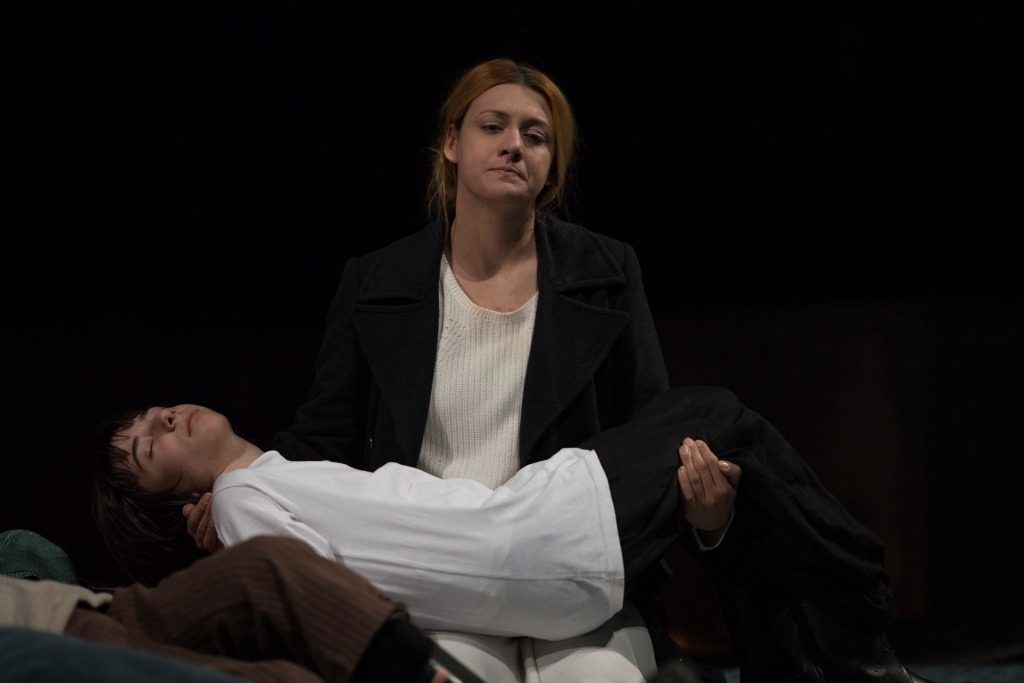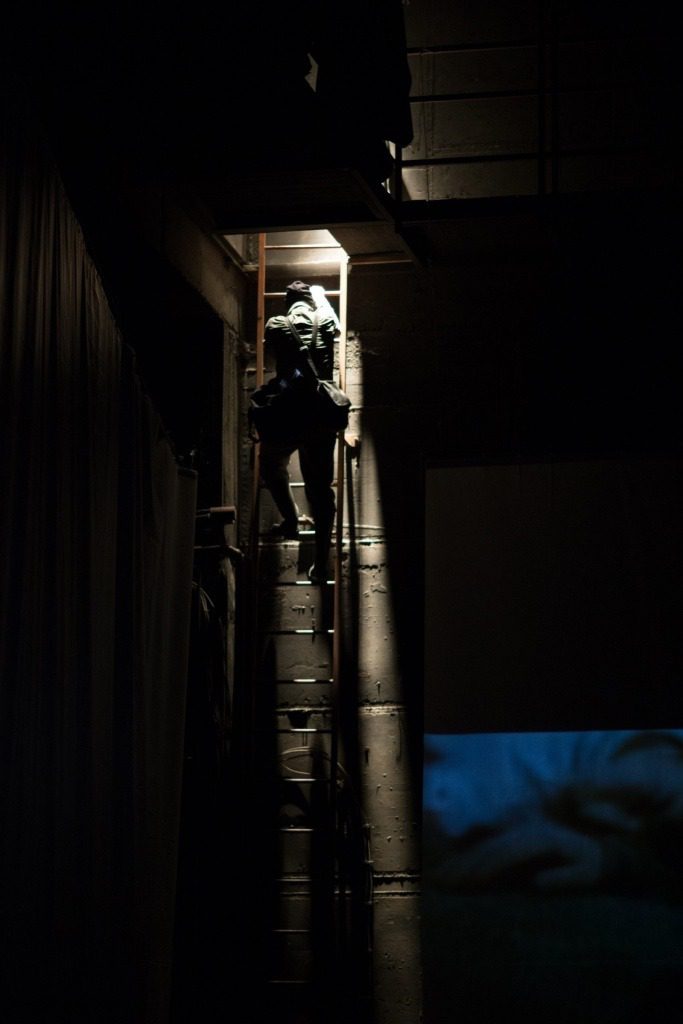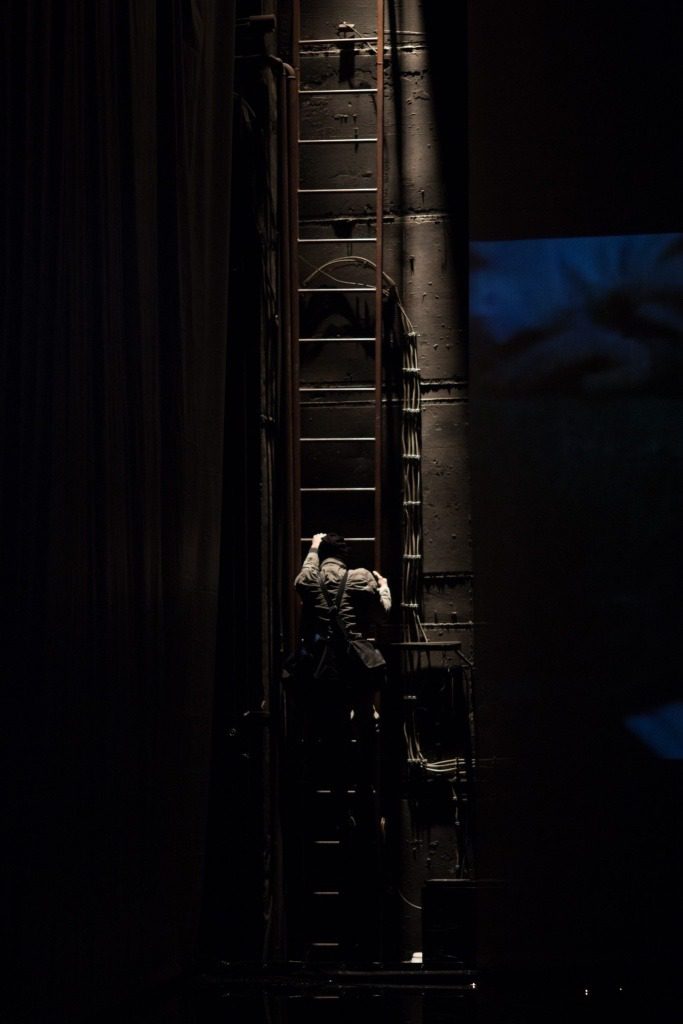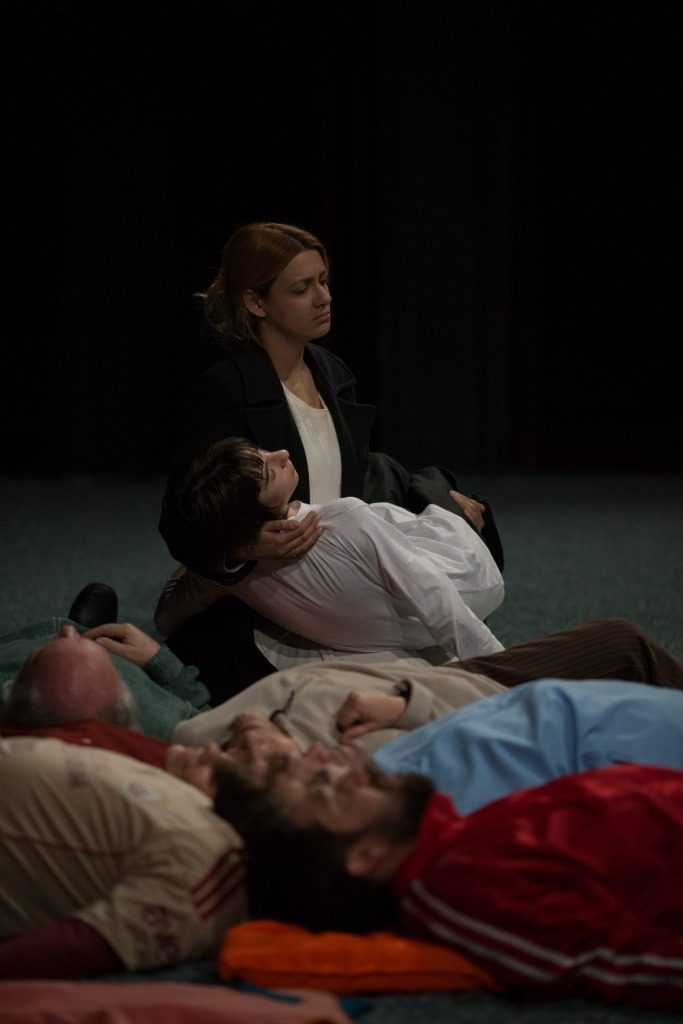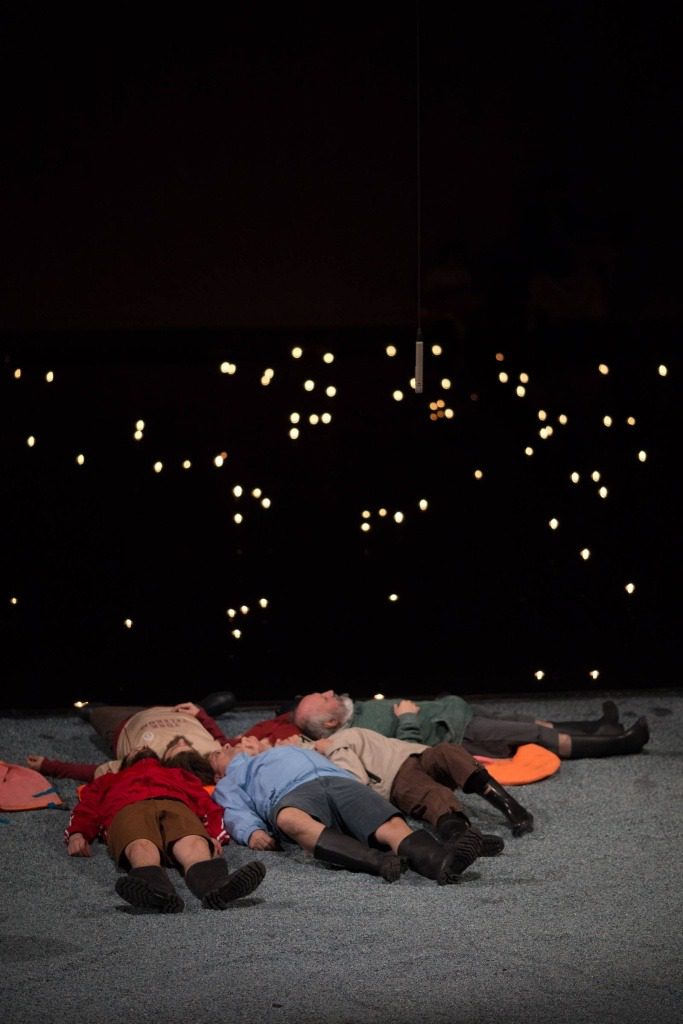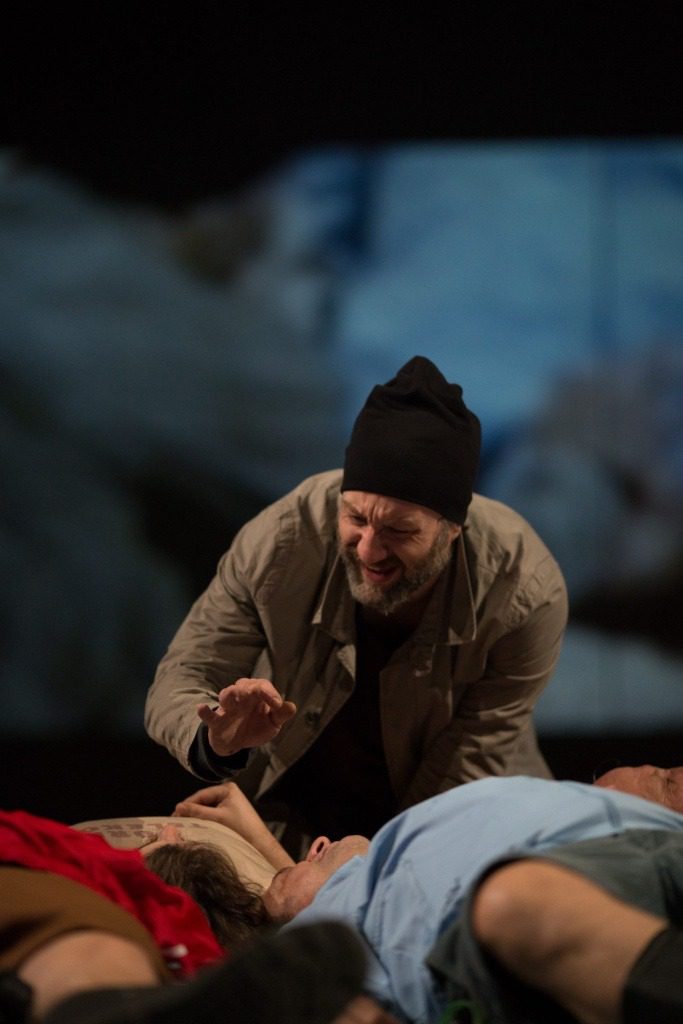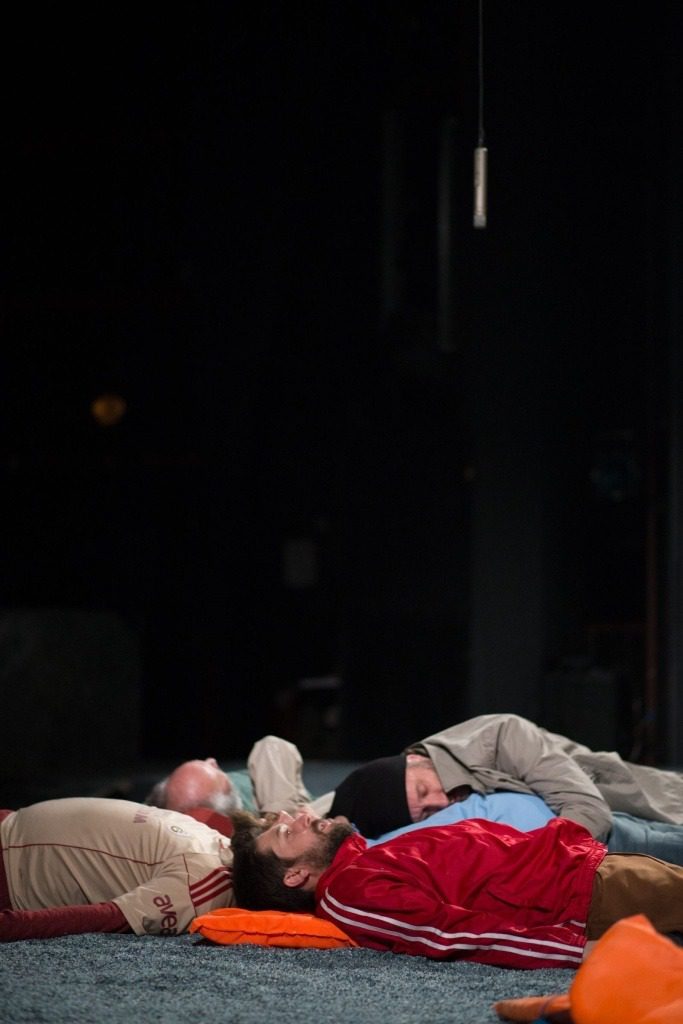THE CHILD DREAMS
Author: Hanoch Levin
Playwright: Biljana Krajchevska
Translation from English*: Snezhana Krajchevska Plushkovska
Director: Itai Doron
Scenography and visual arrangement: Omri Rosenbloom
Scenographer-consultant: Valentin Svetozarev
Costume designer: Blagoj Micevski
Light designer: Lior Maytal
Light – master: Ilija Dimovski, Goran Petrovski
Original music: Tomer Ranbinovic
Design on tone: Aleksandar Dimovski
Production Manager: Petar Trajchevski
Videographer: Vladimir Perelovski, Philip Oshavkov
Props: Save Petrushev
Inspector and cameraman: Dimitar Mihajlovski
Makeup artist: Sasho Martinovski
Caper: Zorka Djakovska
Painter contractor: Goran Spasevski
Rehearsal translator: Anna Gramosli
Photographer Aleksandar Bunevski
Premiere: 26.01.2019
Playing:
Katerina Anevska Drangovska
Fiery Drangovski
Boris Chorevski
Angel Micevski
Marjan Gjordjievski
Petar Gorko
Sonja Mihailova
Borce Djakovski
Sonja Oshavkova
Petar Mircevski
Nikola Stefanov
Anastasia Hristovska
Aleksandar Stefanovski
HE DREAMS ABOUT THE CHILD
The first version of the text was entitled "The ship St. Lewis – Songs of Death” and as the name itself suggests, Levin originally wrote the text based on a true story about the ship St. Lewis, the ship that sailed from Hamburg to Cuba on 13 May 1939 year with 937 refugees, German Jews, who wanted to escape after one of the bloodiest nights for the Jews – Kristallnacht. Refugees are not allowed to enter Havana, so they try to find refuge in other ports in the US and Canada, but even there they are forbidden to enter. They are returning to Europe again, where they are accepted by several countries, however, many of the refugees eventually ended up in Nazi concentration camps. In the end, Levin gives up trying to write a historical drama and the end result is a dramatic text, in the atmosphere of a dream, unencumbered by historical facts – universal, poetic and timeless.
The drama tells us a story about a journey of a mother and a child who seek refuge after leaving their home, after soldiers kill the father and expel the mother and son.
They sail into the vast ocean of the unknown, they beg for refuge on a poor island and are eager to give up everything but life, waiting for any rescue.
ABOUT DREAMS AND CHILDHOOD
In the reality we now live on a global level, it is very easy to find ourselves in the political image and moral code presented in the text.. The refugee crisis all over the world has allowed us to see shocking images and face moral dilemmas not only at the level of continents and countries, but also as persons – what should be our reaction to this reality? What is the real motive to help and at what cost?
All these questions prompted us to choose this particular drama, right now and in this city. The deeper you sink into Levin's words, the more you distance yourself from these questions. How easy it is to forget that this play is about a dream. And for a child who dreams that dream. Who is that child?? And why is he dreaming that dream?
The image that this text of Levin's portrays – the harsh reality that is revealed during the journey, takes on an infinite form through the prism of the dream.
The reality of the individual and the reality of the outside world merge - the dream and the present are mixed.





